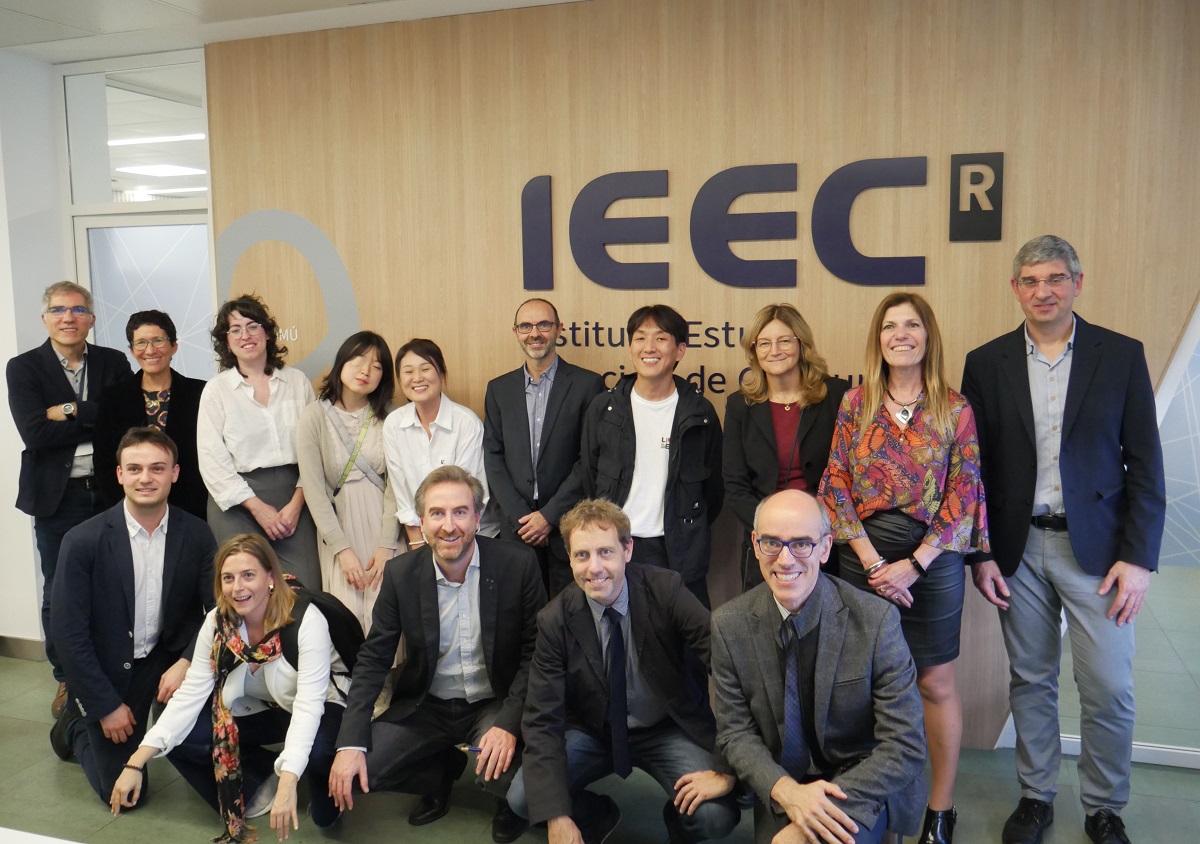The Disruptive & Emerging Technology Alliance visits the IEEC headquarters

Caption: DETA delegations visited the IEEC on the afternoon of 7 November.
Credits: IEEC.
The Institute of Space Studies of Catalonia (IEEC — Institut d’Estudis Espacials de Catalunya) received a visit from the Disruptive & Emerging Technology Alliance (DETA) yesterday, on 7 November. DETA is an initiative of the Government of Catalonia that brings together 17 governments representing some of the main technology hubs in the world. Its activity revolves around five working areas: Quantum, Artificial Intelligence, Digital Rights, Cybersecurity and NewSpace.
The visit is framed within the first Annual Summit in Barcelona, organised by the Government of Catalonia, which holds the rotating presidency of the DETA for the years 2024 and 2025. On 6 and 7 November, they debated on the ethical use of emerging technologies and how to make them work for the benefit of citizens, supporting local industry and preserving democratic values and human rights.
Among the most significant actions, the attending delegations approved a manifesto to promote ethical and reliable artificial intelligence and agreed to begin the process of joining the Zero Debris Charter, an initiative of the European Space Agency (ESA) that promotes sustainable space missions.
During the visit to the IEEC, DETA members were able to talk with various experts from the Institute, who showed them the role of the IEEC in space research and the promotion of the NewSpace ecosystem in Catalonia.
In this context, the Summit delegations also visited other leading centres in Catalonia, such as the Barcelona Supercomputing Center (BSC), the Computer Vision Center (CVC), the ALBA Synchrotron and the Institute of Photonic Sciences (ICFO).
The alliance currently includes the following governments: Buenos Aires Province (Argentina), Bavaria (Germany), Catalonia (Spain), Costa Rica, Emilia-Romagna (Italy), Flanders (Belgium), Gyeonggi (South Korea), Hessen (Germany), Massachusetts (USA), Kyoto (Japan), Occitania (France), Quebec (Canada), Scotland (United Kingdom), South Australia (Australia), Wales (United Kingdom), São Paulo (Brazil) and Western-Cape (South Africa).
